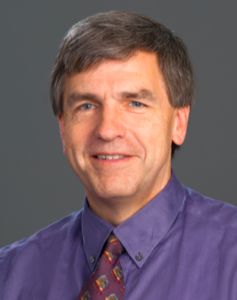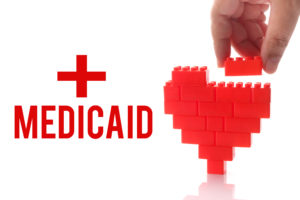By Richard Lord, MD
One of FaithHealth’s closest partners is the Family Medicine Department of Wake Forest Baptist Health and its Population Health team working across the region. Richard Lord, MD, leads both, undergirded by his medical training and a degree in economics. But the driving force goes back further into his youth.
 I was drawn to family medicine because of long-term relationships with families and being involved in the community. I learned that in church when I lost my dad at age 12. Four in our small youth group lost a parent, another kid had open heart surgery, another died of a brain tumor. I could see that medicine mattered, but so did community.
I was drawn to family medicine because of long-term relationships with families and being involved in the community. I learned that in church when I lost my dad at age 12. Four in our small youth group lost a parent, another kid had open heart surgery, another died of a brain tumor. I could see that medicine mattered, but so did community.
Community work takes time, as any pastor knows. I worked with a volunteer board for five years to get the first federally qualified clinic open. It took another three years to become United Healthcare Center, now caring for thousands. Almost everything meaningful takes years. Now we are trying to fix Medicaid, changing the basic structure of the relationship between government and the health of the very poor. For most in the faith community, this is still an abstraction. Some congregations may have no one who’s on Medicaid, some have a lot of folks on it. You might not even know. You have to be really poor to qualify, but now everyone on Medicaid in North Carolina has the same coverage.
The new process is more complicated. One group qualifies you, and then you have to choose between five plans which aren’t identical. In rural areas, physicians could say, “I’m not taking any more Medicaid.” So, you could have a Medicaid card but not have access. Some hospitals will be more restrictive (not Wake Forest Baptist!).
Every congregation should have somebody paying attention to Medicaid as a trusted communicator to the rest. If a congregation knows individuals who might qualify, they need to help them make choices rather than sitting back and hoping it all works out. This is ministry. Churches should feel that this is an important piece of what they’re doing. We have a ministry to the poor, but we can also have a ministry to the sick. We have to resist what I call the business-ification of medicine. It’s mostly about relationships, not technology. But when we get both right, we’ve seen amazing things.
Recently, it was common for 21 of every 1,000 patients to bounce back to the hospital within 30 days, which is expensive and disruptive for everyone, especially the patient and family. We focused on navigation with a nurse called Carla. She calls to make sure you understand and have your medicines. She connects things. And now our readmission rates are less than half, all because of the relationship.
We’re rediscovering the roots of family medicine. FaithHealth talks about proactive mercy, which means not waiting for people to show up at our doors. Of course, when we’re really sick or having a heart attack, getting to a physician is extremely important. But over the long term, so many other things that the church knows a lot about have impact: where we live, our income, what type of food we can afford and access to it, our education. And all this is connected by human relationships.
Not everyone in 2019 has a faith community. But as a doctor I can tell a difference when I walk in a patient’s room if the pastor has been by to say “We’re praying for you. We’re here for you. We’re going to be here for you when you leave.” It makes a huge difference.

